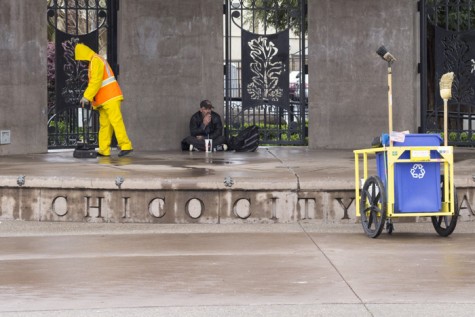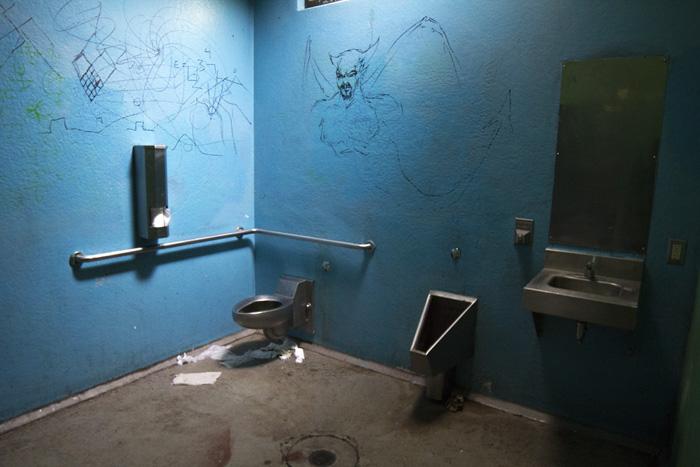After ongoing discussion, the Chico Police Department wants to rethink the way they regulate the city and homeless community.
In September 2015, the Chico City Council approved an ordinance aiming to maintain cleanliness and safety in the city. It was both favored and opposed by many.
The ordinance, named the Offenses Against Public Property Ordinance, was officially adopted in October with a passing vote of six to one.
Six months later, the issue was revisited with consideration to expand the ordinance citywide and to establish a 24-hour public restroom downtown. With the changes, police are hoping to further improvements and provide resources that will efficiently prevent future infractions.
The original ordinance made it a misdemeanor to camp, litter, dump, urinate or defecate in public areas and waterways.
Supporters said that after seeing litter and drug paraphernalia on school property, it was the first step to a cleaner, safer Chico. However, opponents said the ordinance was targeting the homeless rather than tending to the core issue – providing them resources. A homeless man spoke at the September city council meeting saying he goes to school daily but there are no accommodations to use the bathroom after-hours.

The three public restrooms located downtown – the Transit Center, Ringel Park and City Plaza – are open during business hours but are often vandalized and require extra cleaning.
There has also been a significant number of deceased persons in the homeless community, as well as crimes committed, most often with the homeless themselves being the victims. Chico Police feel it is not showing compassion toward the community to leave them in that condition.
With those concerns in mind, police worked with the city attorney to see about bringing the ordinance citywide.
Chico Police Deputy Chief Dave Britt says the expansion will help officers with outreach and consistency. They will be able to prevent negative behavior within the community and help people function. The department will also have more tools to contact people and direct them to resources.
“We want to have supportive options available to people if we’re telling them they can’t do something,” Britt said.
The department has worked to partner with resource providers, such as the Jesus Center and Stairways Programming, to provide alternatives.
The police are engaging in preliminary discussion with the Jesus Center on the possibility of storage lockers to reduce personal property in public areas, which reflects the purpose of the ordinance.
The storage lockers will also protect property from theft, vandalism and from getting discarded after water damage due to inclement weather.
Finally, the storage lockers will be kept out of the department’s evidence system. In other words, the police will not be paying storage property managing fees.
Stairways Programming, a nonprofit organization, recently announced they have housed 20 former homeless people through its partnership with Chico Police. They have also provided support through counseling, clinical services, identification and birth certificate assistance
In response to the primary opposition on urination and defecation in public areas, Chico Police met with Erik Gustafson, the public works director of operations and maintenance, to discuss the installation of a 24-hour public restroom at 411 Main St. With proper engineering and placement, they believe it could be a large benefit if a recommendation from the Internal Affairs Committee is approved.
In consideration are portable bathrooms, Portland Loo-like steel restrooms with outdoor hand washing stations, and self-cleaning units. Gustafson says the Portland Loo-style restroom would be an effective way to provide long-term 24-hour restroom availability while maintaining the beauty of downtown.
Although citations for violations of the ordinance continue, Sgt. Scott Zuschin has emphasized the goal of the department to build a foundation of alternatives and resources before proceeding with the violation aspect. In doing so, the department is educating officers in the proper use of the ordinance and educating the community on its use.
Michelle Zhu can be reached at [email protected] or @mmichellezhuu on Twitter.









